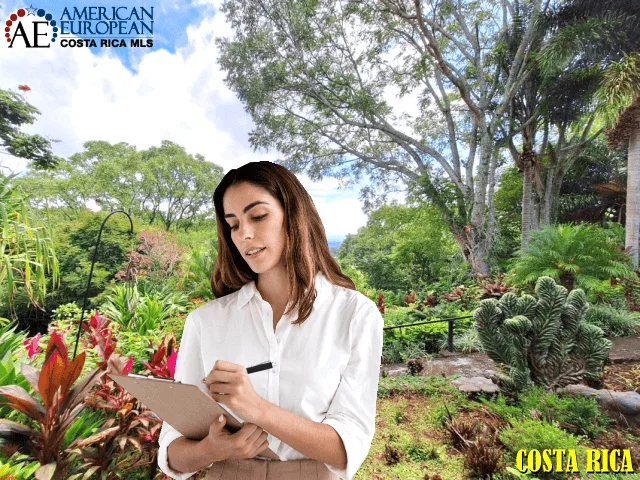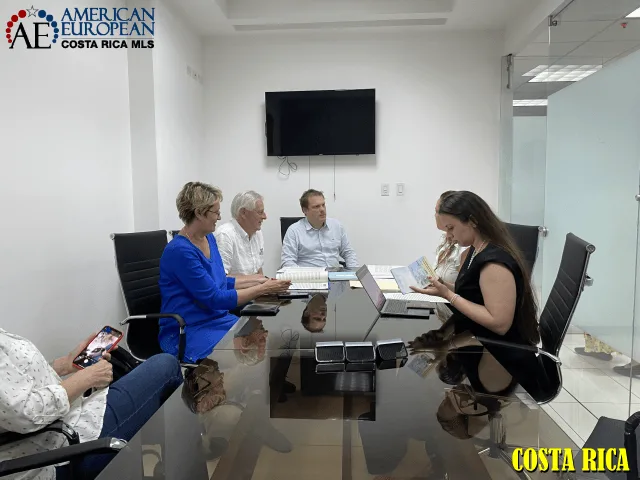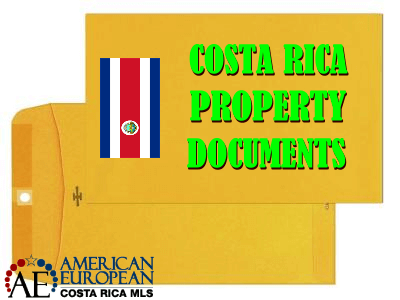Estimated Reading Time: 6 Minutes
A reader who did not receive the title documents at closing is now unsure of the title to her property. She commented on an article I wrote years ago for the Tico Times:
I purchased land in Costa Rica about 4 years ago and I only have “la carta catastrada” and a letter from the notary public. I have to pay taxes on the land which I am working on doing that…. Can I pay property taxes online? How hard is it to get the title to this land in my name, and where do I start the process of getting my title? And how long would it take?
Thank you in advance for your response.

Scary?
For sure, this person didn’t use one of our affiliate members at the American European Real Estate network! At first glance, this sounds scary and like this person got scammed. Usually, it turns out to be a false alarm due to insufficient information. Often, it happens because the language is an obstacle; other times, because the attorney is not communicative.
Didn’t she receive her title documents at closing? See below which documents she should have received at the closing and which ones after the property was registered in the National Register.
The lack of info is usually the buyer’s own fault (for not knowing) and the attorney’s fault (for not following up after the closing). It can also be the real estate agent’s fault for grabbing the commission check and forgetting to provide the post-closing services a good agent should give.
Pay property tax
Property tax is paid to the municipality where your property is located. To do so, you need to ask the municipality how much you owe. They will ask for the title number, which is the “folio real” or “número de matricula”. Some municipalities give you the option to pay online, and others oblige you to pay in person.
If you don’t know what the title number of the property is, learn more here.
At closing
A Notary Public is the only professional who can register a title transfer / do a Costa Rica real estate closing. Certain title documents are to be received at closing, while others are to be received after closing. Which title documents at closing are important? That depends entirely on whether you are buying the property in your own name or in the name of a corporation. See below for more.
In your personal name
When buying a property in Costa Rica in your personal name, you should receive the following title documents at closing:
- A copy of the deed (written in the notary public’s protocol), where the title transfer is recorded, signed by both parties, and authenticated by the notary public. The notary public will present this deed to the property section of the National Register for registration.
- Certification from the municipality that property taxes are paid up to date.
- Copy of the cadastral survey plan (plano catastrado) pulled from the Catastro.
- A recent property value declaration (declaración de bienes inmuebles) from within the last 5 years.
- The last luxury home tax payment (when applicable).
- Proof of the last corporation tax payment if a corporation owns the property before the transfer of the title. (when applicable)
- Last 3 paid invoices of utilities: water and power.
- Financial statement of fees and payments made during this transaction.
- When buying a condominium, you should also receive the bylaws, financial statements, the minutes of the last two HOA meetings, and a letter from the HOA administrator confirming that the HOA fee is up to date.
These are the documents that you should receive after the closing:
- A study of the property in the National Register showing that the property now belongs to you.
- Some real estate attorneys will also ensure your property is in your name with the municipality (which often does not happen automatically).

In a corporate name
If you are buying the property in a new corporation constituted for the property purchase, you should receive the following title documents at closing in addition to all the above
- 5 corporate books.
- The shares of the corporation.
- The corporation’s powers of attorney are the most crucial.
Be aware that if this corporation is going to generate income, it needs to hire an accountant to register with the tax office (Ministerio de Hacienda), keep the books, and pay the monthly VAT.
When taking over an existing corporation
Taking over an existing corporation used to be common, mostly to save on property transfer taxes. Laws have changed, and it’s no longer recommended to take over an existing corporation.
- 3 Corporate books for bookkeeping
- The shareholder’s book with the transfer of the shares to the new shareholders
- The Board of Directors’ book, where the old board is released and the new board is appointed. In this book, there must also be a statement that the BOD grants the power of attorney to sell to the person who signs the title transfer.
- Shares of the corporation (endorsed by the former shareholders)
Post-closing
What happens to your title documents after the closing?
In most cases, everyone forgets to follow up on the title documents. This Tico Times reader had a good reason to be so lost. These title documents are needed as proof when you or your heirs want to sell again.
Usually, title registration takes about a week. But if not, give it 30 days and then call the closing attorney to request the following documents:
- A title report that shows that you or your corporation owns the property
- Copy of the deed stamped by the National Registry
- Add those documents to all the others mentioned in this article, put them in one or two 12 x 9-inch envelopes, and put the name “Costa Rica Property Documents” on them. Please keep them in a safe place. And please let your heirs know about it.

A good attorney
The above information demonstrates the importance of using a competent closing attorney with experience in property title transfers. Please do NOT use the real estate developer’s attorney, or one who handles marriages, divorces, or anything that crosses their desk. Use someone who specializes in real estate and speaks English. Of course, it’s your call, but I also recommend an experienced real estate agent who can walk you through this process and pay attention to the details.
Nonetheless, as the property owner, you are responsible for following up after closing and ensuring you receive all the title documents. That way, you won’t be running around like a chicken with its head cut off when you can’t find the property information.
If you have any legal questions about this topic, please contact your attorney. For professional real estate assistance in Costa Rica, contact us now. If you like this article, please feel free to share it on your social media or request a Zoom meeting with us.



















1 Comment
Well said, Thanks Ivo.